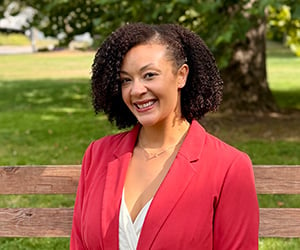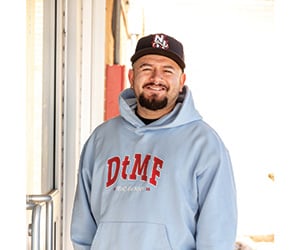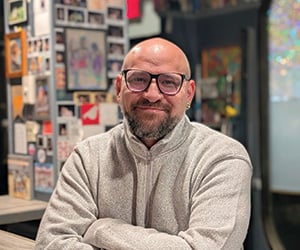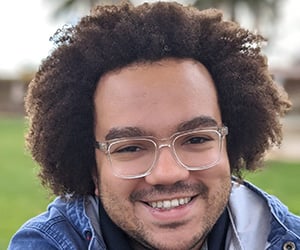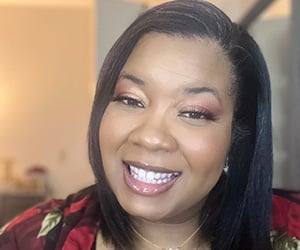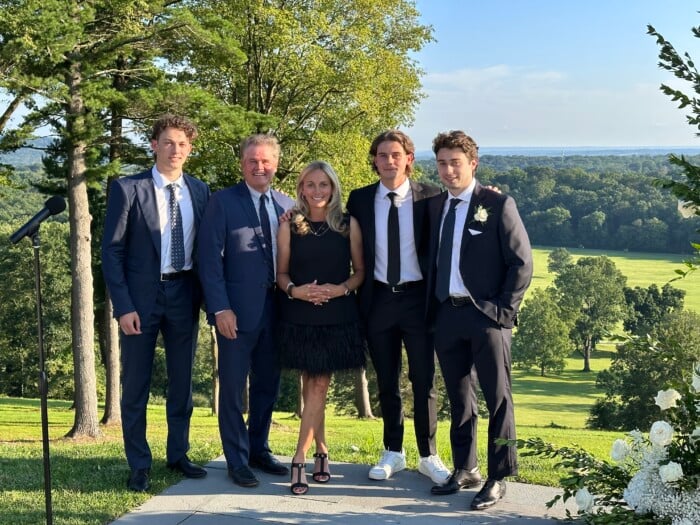Advancing Careers for Those of Color
ESC Catalyst trains people of color for consulting roles

For more than four decades, business leaders worked through what is now Empower Success Corps (ESC) to consult with nonprofits looking to grow. ESC connects executives with organizations who are seeking assistance in strategic planning, fundraising, board building, branding and other services.
ESC was seeing increased requests for consultants who not only have the necessary management know-how but also a lived experience of the communities where the nonprofits are operating, says Andrew Spooner, ESC’s associate director of consulting and catalyst.
“Foundations and government needed to connect with communities in new ways,” Spooner says.
To help meet that demand, ESC created the Catalyst fellowship, now on its second cohort. Catalyst is a program for mid-career professionals of color designed to develop consulting skills that will advance their careers.
Spooner says the fellowship helps lift the careers of people of color while helping ESC meet the demand for nonprofit consultants.
That was the case for Alisha Robinson of Lebanon, NH, who is a human resources and diversity and inclusion specialist in the health care sector.
“I have been approached by several organizations to share my expertise regarding different aspects of HR and DEIB, but never offered compensation,” Robinson says. “Recently I was approached by a nonprofit to consult on a job description and offered compensation. It got me thinking that I definitely deserved to be compensated for the knowledge I was sharing but had no idea how to do it. When the opportunity arose for this fellowship, it was the perfect way to learn how to market myself as a consultant and increase my skill set.”
Fellows meet three times a month from January through June going through hybrid training with consulting advisors. After completion of the training, teams of fellows with an ESC lead consultant are assigned to actual nonprofit projects that fit with their professional expertise and interests.
“The training we bring to fellows is what we do best,” Spooner says.
The Catalyst program in also unique in that it targets mid-career professionals while many of the other consultants are either retired or in upper-level authority roles. ESC works to accommodate the Catalyst fellows’ work and personal life needs while working on the consulting projects, since they likely have less flexibility in their schedules than C-suite leaders.
First-year fellows have also returned to provide support and networking for this year’s cohort.
Lisa Carter was a Catalyst fellow in its first year and has returned this year as an advisor.
“I had started to consult for nonprofits before the fellowship, but it was becoming increasingly a profitable part of my consulting (firm),” Carter says.
Carter’s background is in marketing, and found the finance and compliance sections of the training very helpful.
“It provided me with the inside view of the operations of a nonprofit business,” she says.
After the training, she was assigned to a consulting project with a Jewish camp with multiple locations in the Boston area. She now leads the marketing training module.
“I think it is crucial for the fellows to understand how to market themselves and deliver their value proposition for their service,” Carter said.
Robinson says that the slate of training modules has been useful to those with and without previous consulting experience.
“I came into ESC knowing nothing about consulting, feeling like I had only ‘played one’ before,” Robinson says. “ESC gave me not only the confidence to know that I am a consultant but also the support and encouragement to grow within my already developed skill set and to gain and learn new skills that make me even more valuable to my community.”
The training is free for the fellows, paid for by sponsors including the NH Charitable Foundation, and there is a rigorous application process that goes through professionals’ backgrounds, hopes for skill acquisition and familiarity with consulting. Fellows come from across New England, and six out of 18 are from New Hampshire this season.
Among the barriers people of color may face are that their networks may not reach as high up, Spooner explains. Among the goals of the fellowship training is to give participants confidence to take their skills to higher management and board rooms.
While many of the fellows continue in their existing careers and do consulting occasionally, Spooner says at least two previous fellows have moved on to full-time consulting roles.
This article is featured in the fall 2024 issue of 603 Diversity.
603 Diversity’s mission is to educate readers of all backgrounds about the exciting accomplishments and cultural contributions of the state’s diverse communities, as well as the challenges faced and support needed by those communities to continue to grow and thrive in the Granite State.

